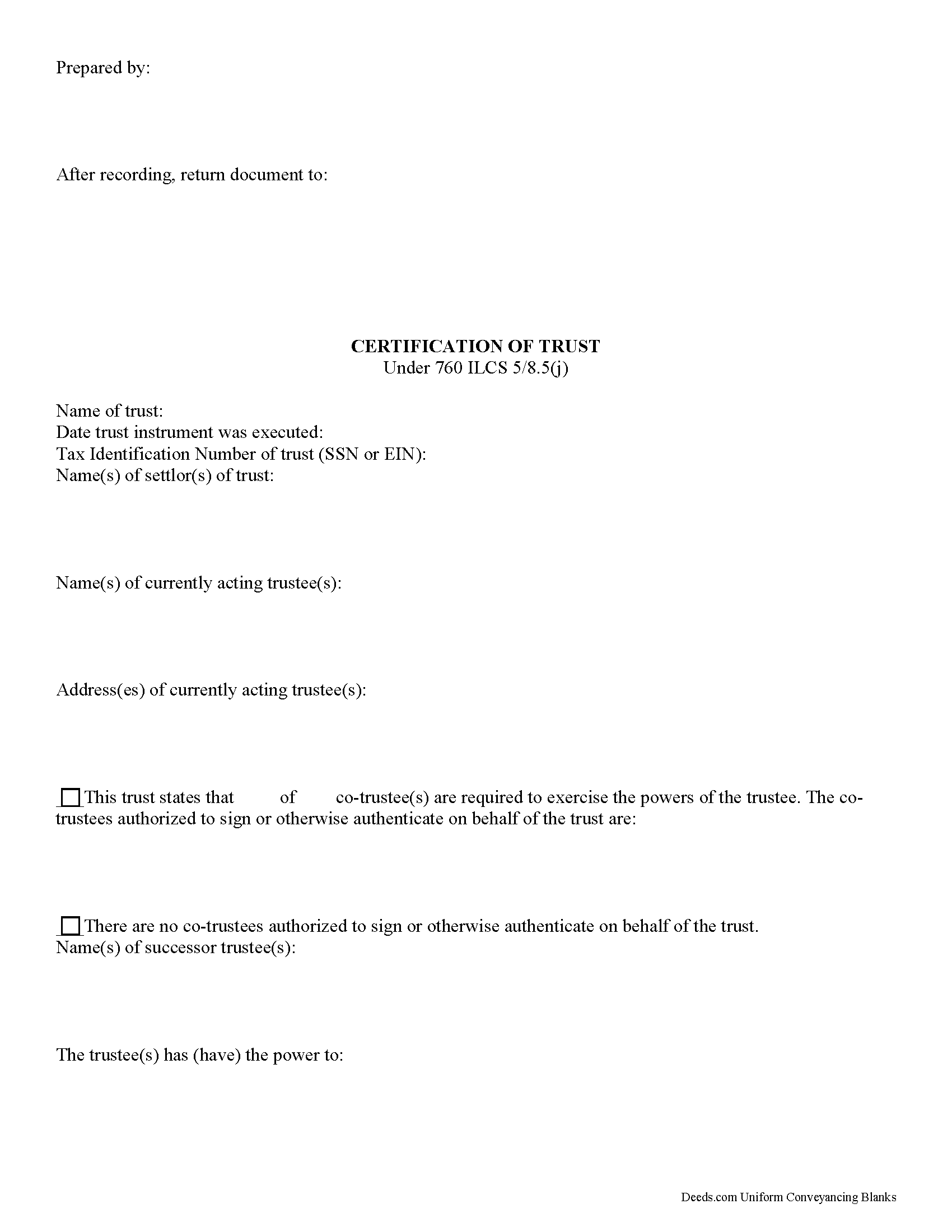Download Illinois Certificate of Trust Legal Forms

Illinois Certificate of Trust Overview

Governed by 760 ILCS 5/8.5, the certificate of trust is the document a trustee provides to a lending institution or other third party that certifies the existence of a trust and his/her authority to act on behalf of the trust.
The document presents only essential information about the trust in lieu of the actual trust document. It names the settlor of the trust and all acting trustees, as well as any successor trustees who may be named under the terms of the trust document. If there are co-trustees, it states the number of trustees required to authorize actions. In addition, the certificate identifies whether or not a trust is revocable and amendable, and who holds authority to revoke and/or make amendments. Certain information, such as the parties having a beneficial interest in the trust, remains confidential.
The recipient of a certificate of trust is not liable for any actions they may take based on false representations within the certificate (760(ILCS 5/8.5(f)). While notarization is not obligatory, a third party may require that the certification of trust be acknowledged.
(Illinois Certificate of Trust Package includes form and completed example)